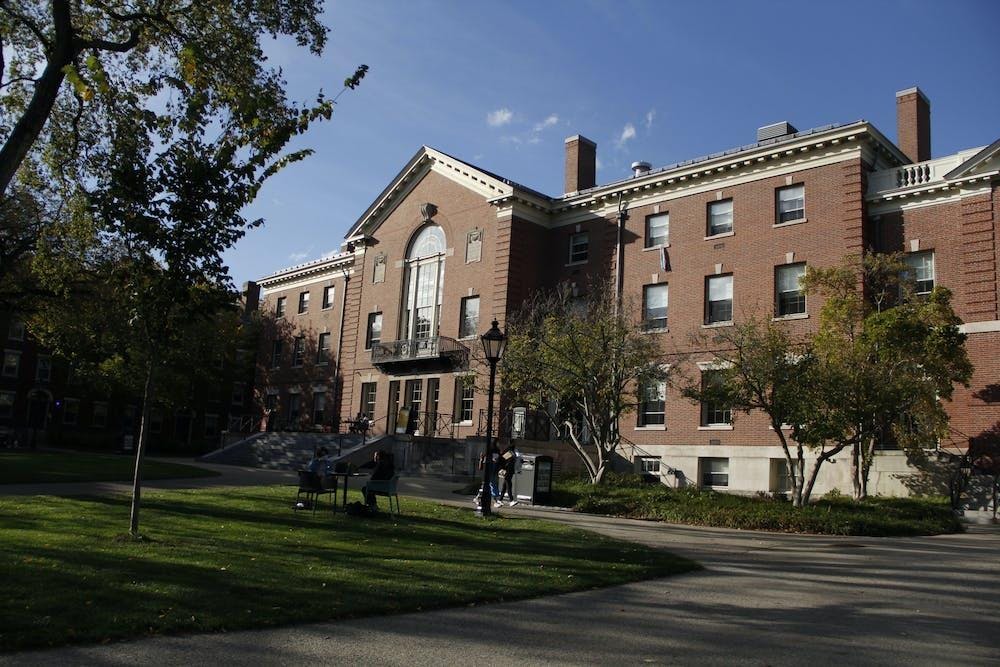The Class Coordinating Board plans to pursue monetary compensation for members’ work on campus, according to CCB Senior Co-Presidents Logan Torres ’24 and Becca Erdenebulgan ’24.
Torres and Erdenebulgan hope that their proposal — which requests compensation in any feasible format, such as tuition reductions or hourly stipends — will be placed on the ballot as a referendum in the Student Government Association spring elections.
CCB has not determined the compensation amount it will request. The source of funding is also so far undecided. First, CCB hopes to measure whether the student body supports the group’s members getting compensation through the referendum, Erdenebulgan said.
According to Torres, CCB is currently considering asking “any office that integrates itself into serving the student body, or has some sort of student facing role,” to fund their initiative, citing the Office of Institutional Equity and Diversity and the President’s Office as examples.
Student Activities Office Director Joie Forte declined to comment on CCB’s planned proposal for funding because she did not review the proposal. SAO advises all student-run campus organizations, including CCB.
Torres and Erdenebulgan argued that members of CCB are uniquely suited to receive compensation due to the nature of their work as the branch of SGA responsible for planning and hosting campus-wide events. The two spend roughly 20 to 30 hours per week in their roles, while less involved members spend roughly 10 hours weekly, Erdenebulgan shared.
In comparison, UCS President Mina Sarmas ’24 dedicates anywhere from five to 20 hours per week to her role, she told The Herald. Undergraduate Finance Board Chair Arjun Krishna Chopra ’25 estimated that UFB representatives work an average of eight to nine hours per week if they’re fulfilling the “bare minimum” of their roles. UFB’s chair and vice chair spend as many as 40 hours per week each
Torres and Erdenbulgan stressed that compensation would help the board’s efforts to diversify and expand access to students who might otherwise need to work to support themselves or who are sacrificing their well-being to do both.
“Students who come from diverse backgrounds need financial support,” Torres said. “If I was financially supported (by CCB), I would have been able to not work my three other jobs on top of this role.”
He added that because of his other jobs, he couldn’t achieve all of his goals in CCB. “All of these larger initiatives that we really want to dive into get put on the back burner.”
Another motivation behind CCB’s request is to improve retention. Many members, according to Torres, only stay on the board for one to two years due to the large time commitment. “There’s so much training and experience that you get from being on CCB for a long time,” Erdenebulgan said. “That makes our events so much better if (they’re run by) people who are experienced.” Every semester, Erdenebulgan says that the board spends up to 10 hours training new staff members.
Torres and Erdenebulgan hope to sponsor the proposal — which is currently being drafted by their Diversity and Inclusion committee — as a referendum in the upcoming SGA elections.
The current UCS Code of Operations states that if “the Council at any time feels it is necessary to determine the opinion of or to express the overwhelming concern of the entire student body on an issue, it may sponsor a referendum to be placed on the ballot during the next scheduled election or whenever the council deems fit.”
The Code of Operations stipulates that, in order to be placed on the ballot, the referendum “must be approved in its exact written form by a two-thirds majority vote” of UCS.
But, according to UCS Elections Chair Eli Sporn ’24, the decision to include CCB’s proposal on the ballot will likely fall to SGA leaders and the elections board due to “the novelty of the process,” he wrote in an email to The Herald.
CCB “has never independently run a referendum before outside of the (2021) referendum for their independence as a branch from UCS instead of a subsidiary,” Sporn wrote. That referendum passed with 70.2% of the vote, The Herald previously reported.
The results of the referendum will not determine whether or not CCB receives any compensation. If students vote in favor of CCB’s request, Torres and Erdenebulgan hope that the results will demonstrate to the University that the student body supports their initiative.
Sporn wrote that the funding of the compensation itself is “up to the discretion of (the Student Activities Office) and higher Brown institutional bodies, which are not held by anything SGA does at all.”

Katie Jain is a University News editor from New Jersey overseeing the graduate student life beat. She is a senior concentrating in International and Public Affairs and History.
Julianna Chang is a University News Editor who oversees the academics and advising and student government beats. A junior from the Bay Area, Julianna is studying Biology and Political Science on the pre-medical track. When she's not in class or in the office, she can be found eating some type of noodle soup and devouring bad books.





